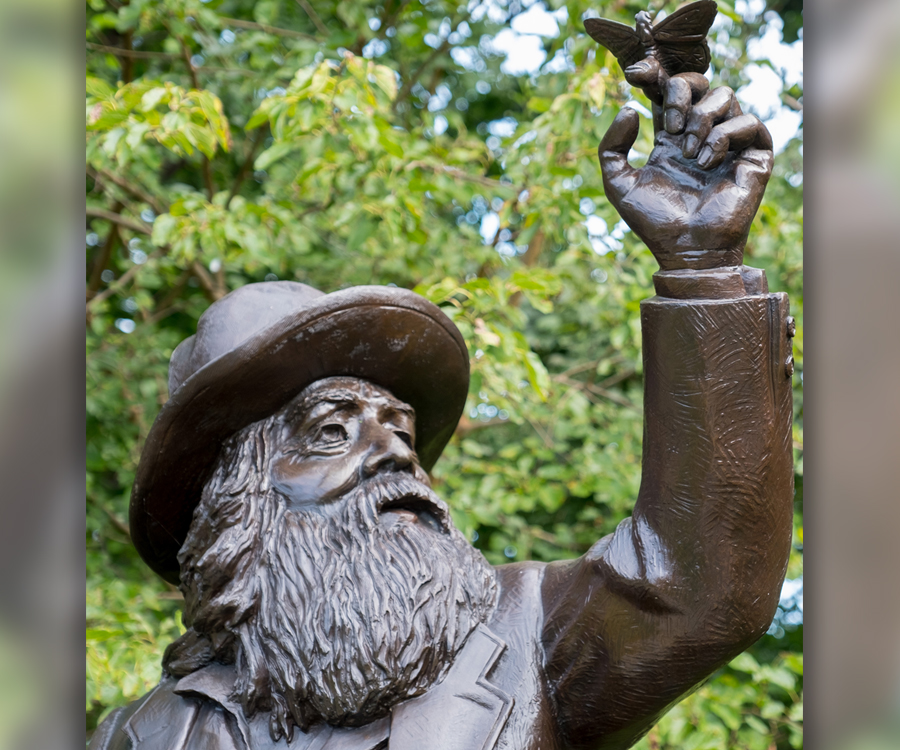To help mark the release of the Literary Arts stamp honoring Walt Whitman (1819-1892), here are some facts about the man hailed by many as the father of modern American poetry.
1. Printing inspired Whitman’s passion for the written word. Born in present-day Huntington Station, NY, Whitman attended public schools in Brooklyn. At age 12, he began to learn the printer’s trade, leading him to voraciously read the works of Homer, Dante and Shakespeare, as well as the Bible. Largely self-educated in literature, he worked as a printer in New York City until a fire in the printing district devastated the industry. Starting at 17, he spent five years as a teacher before turning to journalism as a career — founding and editing a number of newspapers.
2. He could never leave his masterwork, “Leaves of Grass,” alone. Whitman self-published the volume of 12 poems in 1855, then revised and expanded it in no fewer than six more editions during the next four decades. It grew to encompass some 400 poems, including seminal works — such as “Song of Myself,” “I Sing the Body Electric” and “Out of the Cradle Endlessly Rocking” — that influenced writers of the Harlem Renaissance and the Beat Generation, as well as numerous other 20th-century artists and musicians.
3. He wrote a famous line in a film released almost a century after he died. Whitman’s poem “O Captain! My Captain!” provides the memorable words in the emotional final scene of the 1989 movie “Dead Poets Society.” Spoken in tribute to a beloved teacher portrayed by Robin Williams, the phrase became an indelible pop-culture touchstone that resonated further upon the actor’s death in 2014.
4. He was deeply moved by the suffering inflicted by the Civil War. Whitman traveled to Washington, DC, in 1862 to search for his brother, a wounded Union soldier. Overcome by the magnitude of hospitalized young men he encountered, Whitman volunteered as a caregiver to countless soldiers. He ultimately found federal government work and spent more than a decade in the nation’s capital. Whitman’s elegy for President Abraham Lincoln, “When Lilacs Last in the Door-yard Bloom’d,” written soon after his 1865 assassination, is reflected in the new stamp’s background image of a hermit thrush sitting on the branch of a lilac bush.
5. He lived a boldly unconventional life ahead of his time. Unafraid to break away from dominant European poetic forms, Whitman experimented with free verse and everyday language, creating a groundbreaking American poetic voice that still resonates in the 21st century. He also explored controversial themes — such as treating the physical, sensual body as equal to the soul — and forged a significant romantic relationship with Peter Doyle, a horse-drawn streetcar conductor in Washington, contributing to Whitman being embraced today as an LGBT icon.
